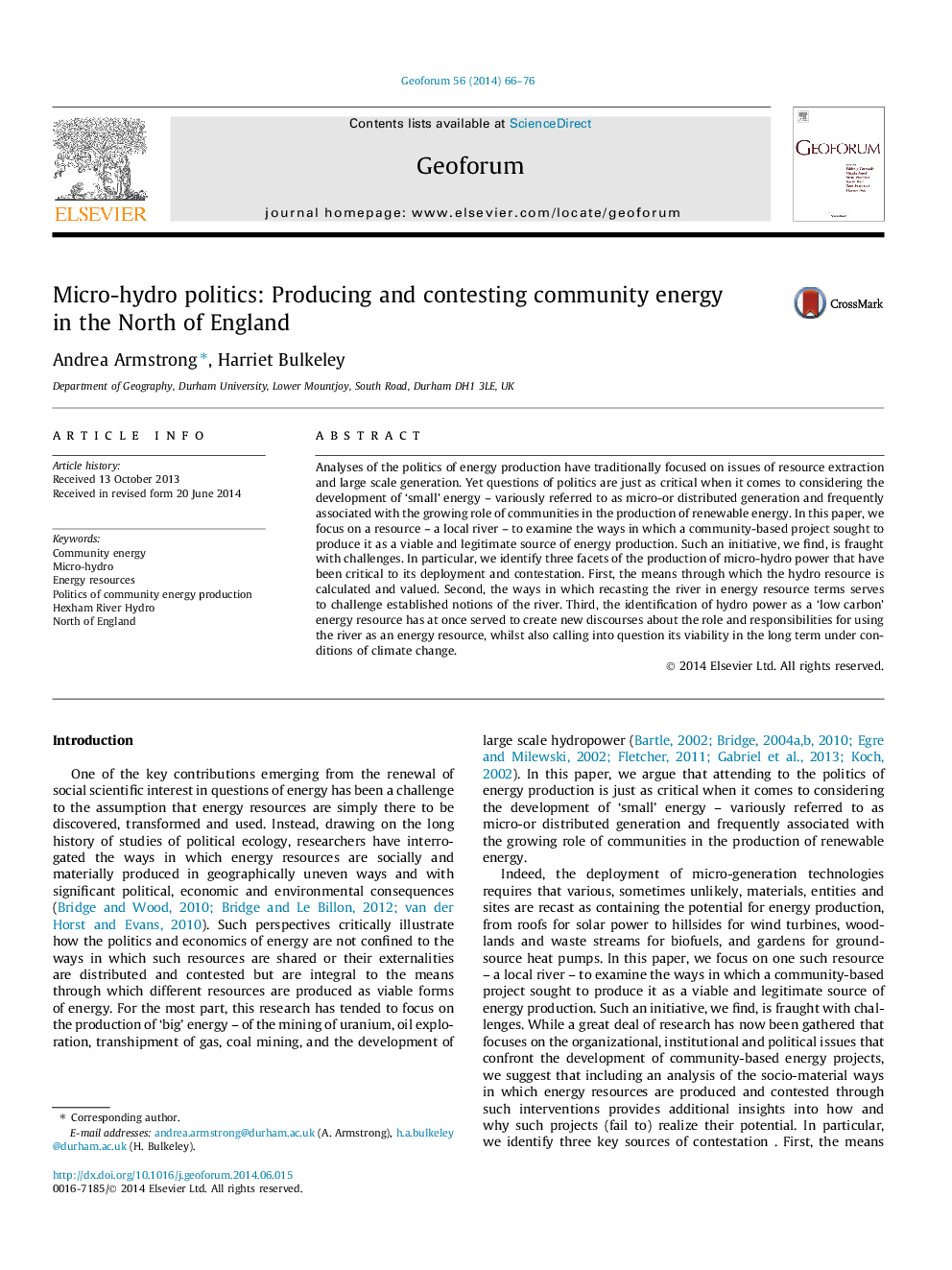| Article ID | Journal | Published Year | Pages | File Type |
|---|---|---|---|---|
| 5074041 | Geoforum | 2014 | 11 Pages |
Abstract
Analyses of the politics of energy production have traditionally focused on issues of resource extraction and large scale generation. Yet questions of politics are just as critical when it comes to considering the development of 'small' energy - variously referred to as micro-or distributed generation and frequently associated with the growing role of communities in the production of renewable energy. In this paper, we focus on a resource - a local river - to examine the ways in which a community-based project sought to produce it as a viable and legitimate source of energy production. Such an initiative, we find, is fraught with challenges. In particular, we identify three facets of the production of micro-hydro power that have been critical to its deployment and contestation. First, the means through which the hydro resource is calculated and valued. Second, the ways in which recasting the river in energy resource terms serves to challenge established notions of the river. Third, the identification of hydro power as a 'low carbon' energy resource has at once served to create new discourses about the role and responsibilities for using the river as an energy resource, whilst also calling into question its viability in the long term under conditions of climate change.
Related Topics
Social Sciences and Humanities
Economics, Econometrics and Finance
Economics and Econometrics
Authors
Andrea Armstrong, Harriet Bulkeley,
